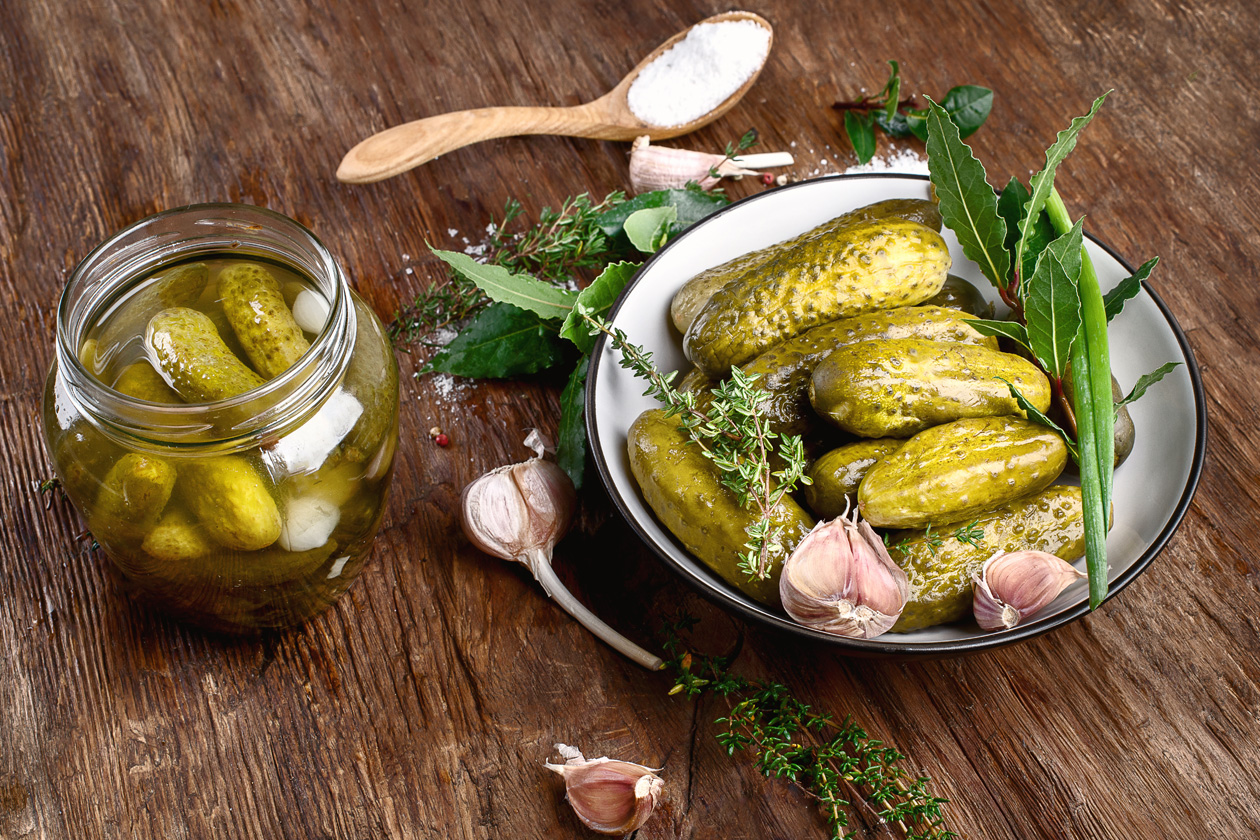Pickles are a very popular food, commonly added to burgers, sandwiches, or even enjoyed on their own. You wouldn’t suspect that these tangy, salty treats can also be healthy for you. But, if enjoyed in reasonable amounts (don’t eat the whole jar), pickles can be a great way to eat healthy without compromising on flavor!
Benefits of the Fruits and Veggies
One of the best ways to lose weight is to eat healthy, and to do this, you need to include healthy fruits and vegetables in your diet. Some people that don’t get enough of these healthy foods may feel that they lack flavor. That’s one thing pickles have in spades. This makes pickling a great way to add more healthy vegetables and fruits to your diet. How?
Well, pickling doesn’t remove the nutrients from what’s being pickled, so if it’s healthy before you put it in the brine, it’ll still have those benefits. For example, most pickles are made from cucumbers, which tend to be low in calories, but high in vitamins like vitamin K. After pickling, those vitamins and health benefits are still there. This is true for other pickled goods, too. Pickling adds flavor without removing the healthy ingredients.
All the Benefits of Vinegar
Pickles are sort of like health benefit sponges. They take in the minerals, vitamins, and benefits of the individual ingredients and keeps them, while creating something new. We already touched on this with the fruits and vegetables, but the same is true of the pickling brine. Many commercial or quick pickles are made using vinegar, which can be really good for you. Even pickle juice (made primarily of the brine) can lower your blood sugar after a meal.
Not only does vinegar, specifically apple cider vinegar, have cosmetic benefits, like adding a healthy sheen to your hair or helping you fight acne and blemishes, it’s excellent for your health. Vinegar can make you feel fuller, help you lose weight, and is healthy for your heart.
Fermented Pickle Benefits
In some cases, pickles are fermented, which gives them an entirely new health aspect. We covered the benefits of the fermentation process in our article “The Health Benefits of Sauerkraut (And How to Make It!). Sauerkraut is fermented, pickled cabbage! To sum up some of the benefits quickly, fermented foods have probiotics, which offer a smattering of anti-inflammatory and gut health benefits, along with a number of other vitamins and minerals.
Not all pickles are fermented, however. An easy way to tell if pickles are fermented or quick-pickled is the presence of vinegar. If there’s vinegar, they’re generally not fermented. If there’s no vinegar, it’s usually a fermented pickle!
Basically, pickles can be a real boost to your diet if you enjoy the tangy flavor. As long as you don’t need to watch your sodium due to high blood pressure (since pickles can be high in sodium), they’re worth adding!
Ready to learn how to make your own pickles? This recipe below is from one of our author’s grandfathers and is a quick-pickling style recipe, which means more pickles quicker. You’ll love it!

Grandpa’s Pickling Recipe
Ingredients
- 5 stalks of celery, thinly sliced
- 5 onions, thinly sliced
- 3 cups of white vinegar
- 2 cups of sugar
- ¼ cup of Kosher salt
- 1 tsp of turmeric
- 1 tsp mustard seed
- 1 tsp of celery seed (or celery salt, balancing out with less Kosher salt)
Directions
- Mix the vinegar, sugar, Kosher salt, turmeric, mustard seed, and celery seed in a pot.
- Bring that to a rolling boil.
- In a heatproof container, pour the brine over the vegetables. (We use celery and onions, but any vegetables work).
- Stir the vegetables to thoroughly coat them in the brine.
- Seal the container and refrigerate it overnight, stirring it occasionally to ensure even pickling.
- Serve or store for up to a week in the refrigerator.



